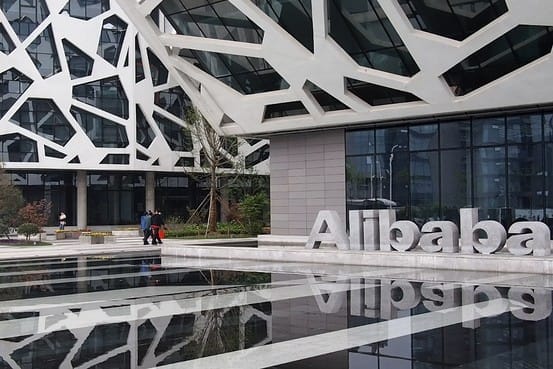Alibaba was a startup when Brian Wong WG03 signed up as its 52nd employee in 1999. Some things haven’t changed since then. “It is equally chaotic,” he said, shortly after a twenty-plus-hour flight from Hangzhou. “It is always changing and recreating itself.” Wong keeps working as if Alibaba was an up-and-coming business, not a $253 billion dollar e-commerce behemoth. After a quick sleep, he was set to host an Alibaba-sponsored Global Business Hackathon at Wharton before returning to China in the afternoon.
The Hackathon was just a sample of what Wong, now a vice president with the company, has been cooking up in Hangzhou. After working with founder and chairman Jack Ma on global initiatives, Wong created Alibaba’s Global Leadership Academy. “What we were missing was international management capabilities—and that is true for many Chinese companies,” Wong said. “We need people that are able to operate in markets all over the world, but also understand the company’s culture and mission.”
AGLA brings executives from around the world to learn and work in the company’s headquarters. They are exposed to the most global of Alibaba’s ten businesses: Ant Financial (its fintech platform), TMall (its B-to-C business across the board), and AliExpress (which exports Chinese products around the world).
Wong said there are executive training programs at other Chinese Internet companies, but none like Alibaba’s. The program aims to teach not only business models, but also about the context and culture from which each one is emerging (for example, how the ”New China” and the new Data Technology (DT) era have come together and feed off each other). Business skills can be learned in many places, but “only coming to Hangzhou can one see the impact of the company on its ecosystem, and the kind of leadership style that is required to pioneer in this new era ahead,” he said.
In December, for example, Wong led the first AGLA participants to rural Chinese areas to see how Taobao—an Alibaba-owned online shopping site similar to Amazon and eBay—is improving the lives of villagers. “These are areas that have traditionally suffered from a lot of unemployment and emigration,” Wong said. “If they stay in the village, they might make about $1000 per year. Thanks to the Taobao initiative, people are able to create jobs in the village and make an average of $1000 or $2000 per month by running Taobao businesses.”

Brian Wong WG03 at the Global Business Hackathon
Wong explains that AGLA will fuel the company’s expansion beyond its home country’s borders. International media have heralded Alibaba’s entry into the U.S. and European markets for the last few years, but entering markets that are already well developed poses major challenges. “When Alibaba started in China, there were no legacy systems to displace, so we could build everything from scratch. For example, when we created Alipay, very few people used credit cards. There was no ingrained habit to change, so people just leapfrogged directly into Internet payment.”
Alibaba’s long-term aim isn’t to compete head-to-head with Amazon, but instead to enter markets where it can add a lot of value. One area poised for growth is cross-border trade. “If an American company wants a foot in China, it should be utilizing our services,” Wong said. (Apple is the number one seller on Alibaba). Wong also sees enormous potential for the services of Ant Financial and Alipay, which is akin to PayPal: “When it comes to taking out a loan, it is more cost effective and efficient to use an integrated system like Ant Financial, rather than to use PayPal, Charles Schwab, Wells Fargo and a host of other services in a single transaction. A normal bank loan in the U.S. takes months to process; a loan with Ant Financial takes three minutes to apply for and one second to get approved and is automatically distributed to your Alipay account.”
Although Alibaba was founded 18 years ago, this is only the beginning for Wong. He said 93 percent of the company’s revenue comes from China, but this is poised to change in the years and months ahead. Innovative platforms like Ant Financial have the potential to disrupt developed markets, but Wong said Alibaba’s growing expansion is not only about revenue—it is a social and cultural phenomenon. Through Alibaba, Wong hopes to train the next generation of leaders and to “proactively shape the perceptions of the new China that are quickly emerging on the global stage.”

























